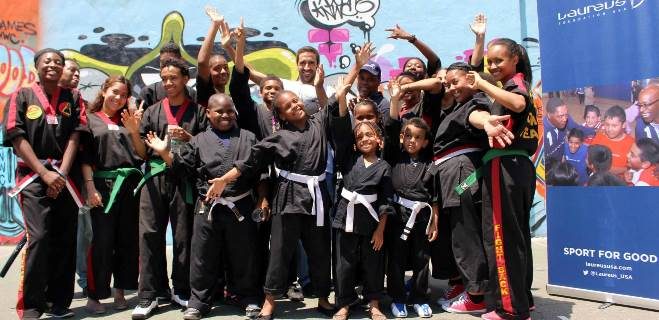Mary Mitchell Family & Youth Center
Mary Mitchell Family and Youth Center (MMFYC) serves more than 1,000 families in the Crotona and Fordham areas of the Bronx with youth programs, new immigrant programs and neighborhood improvement campaigns. Members of their community are primarily low income and represent diverse cultures.
According to Heidi Hynes, Executive Director of MMFYC, too many of the families she works with do not realize they are eligible for health insurance let alone understand how it works or how to apply.
Using its roots and strength in neighborhood organizing, MMFYC is partnering with the Northwest Bronx Community and Clergy Coalition’s (NBCC’s) Health Committee and the Fordham Bedford Housing Company on BPHC’s Community Health Literacy project. The goal is to connect eligible people who are often “under-utilizers” of health care services to insurance, local primary care providers and other community-based services that help them stay healthy and prevent the need for hospital care.
Together, they will use their networks of local organizations and community leaders to reach community members. “People are far more likely to change something if they feel like they are part of a group they trust,” said Hynes. “Ultimately, we want people to feel comfortable thinking they don’t have to wait until they are extremely sick and need the ER. They can go to their local clinic and see their PCP.”
Hynes has a team of organizers, headed by a full-time trainer, who will coordinate and deliver trainings through neighborhood associations, sports leagues, churches, and schools. According to Hynes, the community organizing her team does around health, neighborhood safety, housing and many other priorities all work together.
“The degree to which you think about your health care is affected by the degree with which you are worried about violence in your neighborhood, under-resourced schools, affordable housing, or unemployment,” she says. “And, when you live under many stresses, unhealthy behavior can be comforting.”
That means that trainings include providing a healthy meal and, if necessary, childcare. Translation services are always available. When possible, these sessions are held on-site where people live, like community rooms of apartment buildings.
But, the trainings are just the first step. At the core of the project is personalized follow up. “It’s not enough to inform community members about insurance or healthcare options, we work individually to connect people to services.”
MMFYC integrates health education in all community programs including its “Healthy Zones” for food and beverages in its afterschool and teen programs. MMFYC’s Family Health Challenge presents a weekly challenge to families, like no soda for a week or one fruit a day. Community members can also buy quality, fresh food at about a third of the cost at a retail market through La Canasta, a food buying club started by MMFYC.
Working with NBCC’s Health Committee, a “social determinants of health” training was developed that takes people through the history of the neighborhood that included red-lining, assets, problems with poverty and violence. The initial training brought together 60 neighborhood leaders, including doctors, tenant associations, building supers and others, to discuss problems and identify solutions to make their neighborhoods positive and safe spaces.
Current improvement projects underway include the building of a new Crotona Neighborhood Coalition and the re-development of a baseball field outside the MMFYC Building.
“We’re not changing one thing. We’re changing a system and that is really what DSRIP is doing,” Hynes says.
(Published December 2, 2016)
